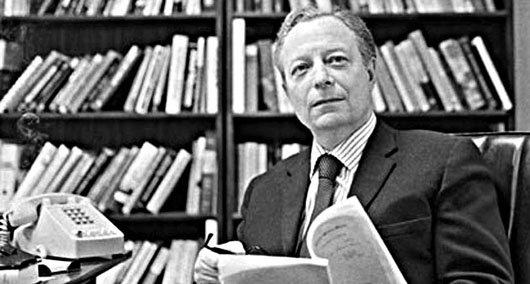by WorldTribune Staff, November 17, 2017
Can the Republic hold?
“We may be richer and healthier and safer in the aggregate than our predecessors. But the parade of ugliness we face bears more than a passing resemblance to theirs,” Matthew Continetti, Editor in Chief of the Washington Free Beacon, wrote in a Nov. 17 column which examined the “denigration” of traditional families, virtues and disciplines on which the foundations of America stands.
“Riots and the suppression of freedoms on campus, drug addiction, deadly clashes between white nationalists and left-wing radicals, increasing numbers of hate crimes, mass shootings, bitter arguments over the national anthem resulting in declining ratings and support for the National Football League, a cascading stream of allegations of sexual impropriety against figures in entertainment and in politics, the slow-motion disintegration of our major parties – it’s as if America itself has been thrown into the midst of a demolition derby, with every one of our prominent figures and major institutions targeted for destruction by Monster Truck.”

Continetti cited “Our Shaken Foundations,” a 1968 essay by Irving Kristol for Fortune magazine:
“Who can deny that, in the United States today, as never before in its history, there is a vast unease about the prospects of the republic?” Kristol wrote.
Continetti is married to Anne Elizabeth Kristol, granddaughter of Irving Kristol, the “godfather of modern neoconservativism”) and daughter of The Weekly Standard’s Bill Kristol, the No. 1 conservative “never-Trumper.”
Continetti’s Free Beacon also was one of the first to contract Fusion GPS, the opposition research firm that went on to hire ex-British spy Christopher Steele to author the discredited Trump dossier.
But the Free Beacon editor did not blame the president for the nation’s ills or the “counterrevolution” that may have boosted his candidacy.
He quoted Kristol: ” ‘The premonition of apocalypse springs eternal in the human breast.’ Every civilization undergoes recurrent cycles of anxiety and dislocation that eventually subside. ‘Somehow, the human race endures, life continues to yield its modest satisfactions; the world doesn’t actually come to an end.’ ”
“We know the problems of American society …. None of these problems, taken by itself, seems insoluble. But taken together, they constitute a condition and are creating habits of mind that threaten the civic-bourgeois culture bequeathed to us by Western civilization.”
What Kristol called the “technological imperative,” Continetti said, “continues to drive social and cultural and political upheaval. The screens we carry around in our pockets absorb our attention. Social media gives rise to selfies and revenge porn and Twitter mobs, and ends as many friendships as it creates. The Internet produces massive inequalities of wealth while collapsing barriers to information and trade (good) as well as making safe spaces for criminal networks (bad).”
“The slightest glance at political, entertainment, and business headlines demonstrates that the bourgeois virtues of restraint, frugality, reticence, self-control, self-discipline, and fidelity are not only absent in our public life. They are denigrated. … And though a great many families of schooling and wealth have been able to insulate themselves from the gale-force winds of instant gratification and narcissistic self-expression, those in the middle- and lower-ends of our society do not have the luxuries of loving two-parent families, good schools, safe neighborhoods, well-paying jobs, and welcoming churches.
“Add to technology, entitlement, intergenerational antagonism, popular culture, and secularization the changes that have eroded the bourgeois conception of the stable, married, two-parent family. ‘Among those who currently follow the old precepts, regardless of their level of education or affluence, the homicide rate is tiny, opioid addiction is rare, and poverty rates are low,’ noted Amy Wax and Larry Alexander last August in the Philadelphia Inquirer. For her troubles, Wax was tarred as a racist and protested at the University of Pennsylvania Law School where she teaches.”
Finally, Continetti wrote, “there is the ongoing decline of religion. Five decades ago, Kristol called this ‘the most profound change of all.’ Today, the fastest growing religious affiliation in the country is Americans professing no religious affiliation. ‘All human societies have to respond to two fundamental questions. The first is: ‘Why?’ The second is: ‘Why not?’ … It is religion that, traditionally, has supplied the answers to these questions.’ Increasing numbers of Americans, however, look elsewhere.”
Continetti concluded: “The civic-bourgeois culture that precedes and shapes politics can also be shaped by politics. It is a matter of asserting the old values and traditions plainly, unabashedly, and forcefully. Of teaching young people, and reminding old ones, to sit on their hands and control themselves. Of recognizing we too may be living in the opening stages of a backlash against the degradation of bourgeois culture — and that the ultimate outcome of this counterrevolution is unknown.”
Read the full column here
Subscribe to Geostrategy-Direct __________ Support Free Press Foundation
